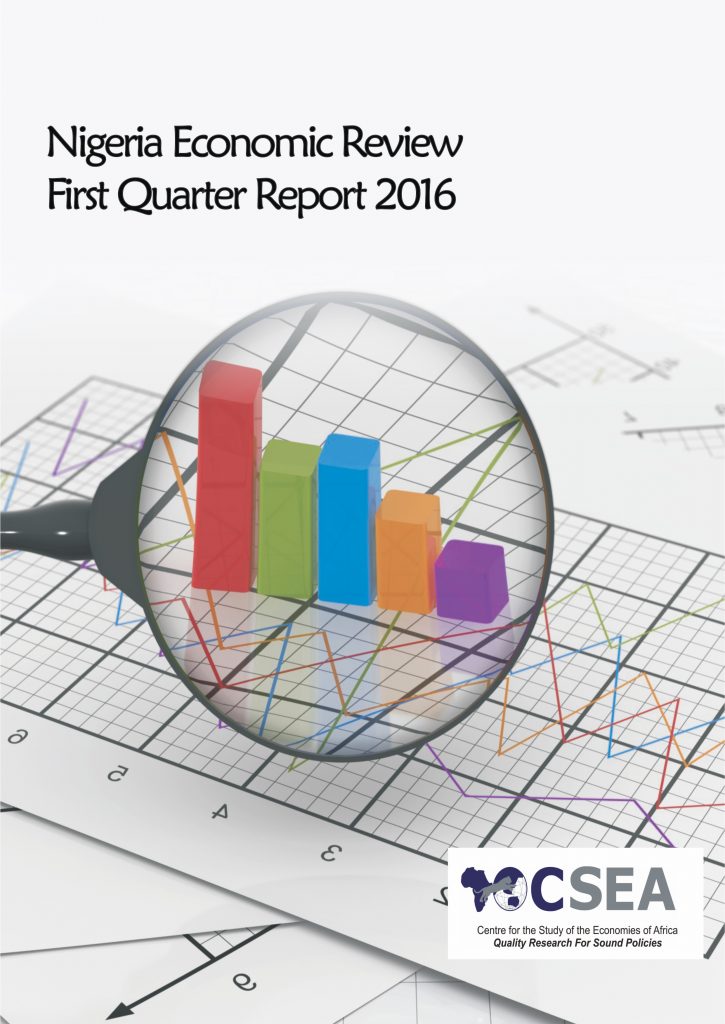Macroeconomic Report & Economic Updates

August 25, 2016
Nigeria Economic Review
This report provides an evidence-based analysis
of the state of the Nigerian economy in a bid to inform economic policies
in Nigeria. The report presents some analyses of significant economic events in
Nigeria within the period, and provides an outlook on what policymakers,
businesses, and individuals should expect in subsequent quarters of 2016. It also provides valuable insights
into potential drivers of the economic trends and outlines expectations for
subsequent quarters of the year. The area of focus are Global Economic
Performance, Domestic Economic Performance, External Sector Performance, and
Sectoral Performance.
Related
Nigeria Economic Update (Issue 6)
The
nations foreign reserves have been on a steady rise. In the review week,
reserves increased by $415.2 million from $28.3 billion on February 3, 2017 to
$28.8 billion on February 10, 2017. The increase is likely the
reflection of a sustained crude oil revenue complemented by moderating global
crude oil price and increasing domestic production. This should help strengthen
the ability of the CBN to foster forex liquidity, and thus help maintain
stability in the domestic forex market. If sustained, it should also help
improve the value of the naira overtime. Hence, the government should implement
proactive and effective policy strategies to, not only, sustain improvements in
oil revenue but also boost non-oil revenue.
Nigeria Economic Update (Issue 12)
The Naira sustained its appreciation trajectory at the parallel market in the review week. Precisely, naira gained 13.3 percent (Week-on-Week) to exchange at N390/$ on March 24, 2017. Reduced pressure on the naira followed moderation in speculative activities as a result of increased forex sales and intervention by the CBN (daily intervention of $1.5 million at the interbank market.) The aim of CBN interventions (narrowing the gap between interbank and parallel market rates) seems to be on course with the continued appreciation of the naira at alternative markets. While current approach of the apex bank proves effective in improving international value of naira in the short term, however, it is expedient that the bank articulates clear and credible flexible exchange rate policy to sustain the momentum and enhance confidence in the forex market in the medium term. Nonetheless, the sustainability of the exchange rate gains is partly dependent on the prospect of crude oil price and production which is outside the purview of the monetary authorities.
Nigeria Economic Update (Issue 22)
Available data from Nigeria Bureau of Statistics shows a decline in the Nigeria Aviation sub-sector (Transport Sector) real growth rate in 2017Q1. Compared to the preceding quarter, the sub-sector declined significantly by 9.6 percent, due to decline in the number of passengers and movement of aircrafts this may be connected to the closure of the Abuja airport for infrastructural development during the period. To ensure a near-optimal performance of the aviation sector, the government should also make efforts to improve aviation safety and security, establish a national carrier, and improve aircraft maintenance to world class standards.
